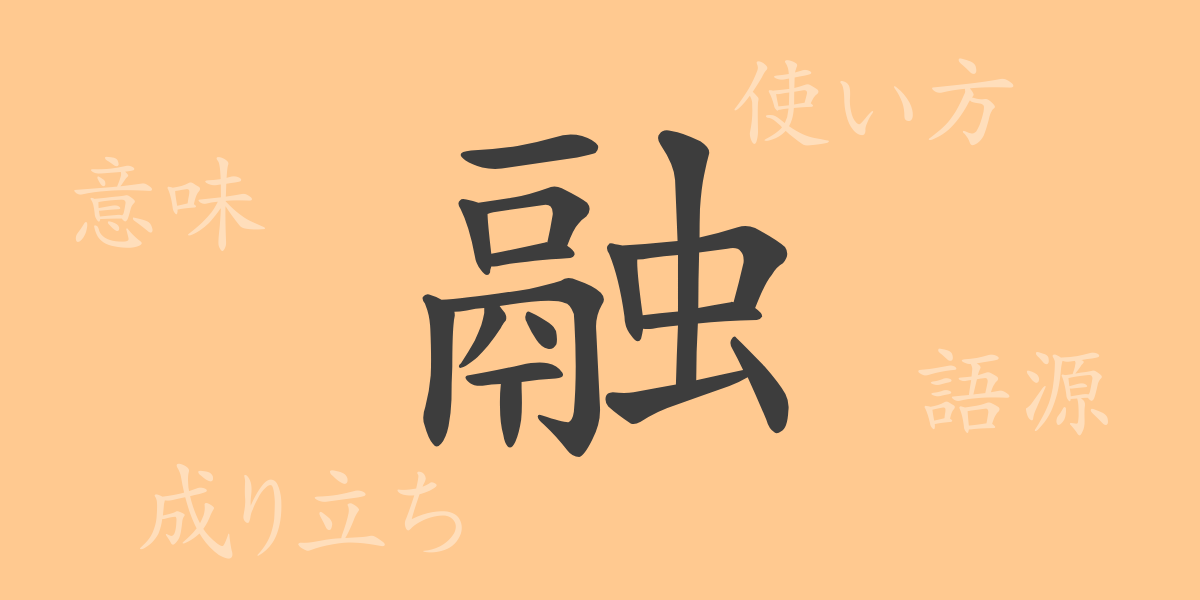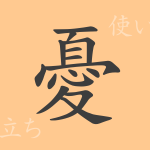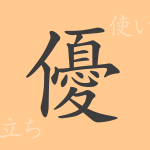The meaning of a single kanji character is deeply rooted in its shape and history. The commonly used Japanese kanji “融” (yū) is no exception. In this article, we will delve into the origins of “融” (yū), its modern usage, and its incorporation into idioms and proverbs. Let’s explore the richness of the Japanese language through “融” (yū), its readings, meanings, and cultural background.
The Origins (Etymology) of 融 (yū)
The kanji “融” (yū) is composed of the insect “虫” (mushi) and “鬲” (lì), which means to melt. In ancient China, “鬲” (lì) referred to a furnace used to melt metals, and the addition of “虫” (mushi), symbolizing change or transformation, gave rise to the meaning of “melting together” or “fusion.” Over time, this kanji has come to represent not only physical fusion but also the merging of concepts and emotions.
The Meaning and Usage of 融 (yū)
The kanji “融” (yū) means “to melt” or “to fuse.” It describes the transition of a substance from solid to liquid or the merging of different elements into one. In the field of economics, it is used to describe fluid financial situations, such as in “資金融通” (shikin yūzū), which means the flexible handling of funds. It is also used to express emotional connections, such as in “心が融け合う” (kokoro ga tokeau), meaning hearts melting together.
The Readings, Stroke Count, and Radical of 融 (yū)
The basic information about the kanji “融” (yū) is as follows:
- Readings: The on’yomi (音読み) is “ユウ” (yū), and the kun’yomi (訓読み) are “とける” (tokeru) and “とかす” (tokasu).
- Stroke count: 16 strokes in total.
- Radical: The radical is 虫部 (mushi hen), the insect radical.
Idioms, Proverbs, and Expressions Using 融 (yū)
Here are some idioms and expressions that include “融” (yū):
- 資金融通 (しきんゆうずう, shikin yūzū): The flexible handling of funds.
- 融資 (ゆうし, yūshi): The act of lending money.
- 融和 (ゆうわ, yūwa): Becoming harmonious or friendly.
- 融解 (ゆうかい, yūkai): The process of a solid turning into a liquid.
- 融通無碍 (ゆうずうむげ, yūzū muge): Acting freely and without constraints.
These idioms and expressions, based on the fundamental meaning of “融” (yū), are used in various contexts, thereby broadening the scope of its application.
Summary of 融 (yū)
The kanji “融” (yū) has been used from its origins to the present day to represent a wide range of meanings, from physical “melting” to financial and emotional “fusion.” The rich expressive power of this single character speaks to the delicacy and depth of the Japanese language and plays an important role in Japanese culture. When you encounter “融” (yū) in daily life, it might be interesting to think about the history and culture behind it.

























